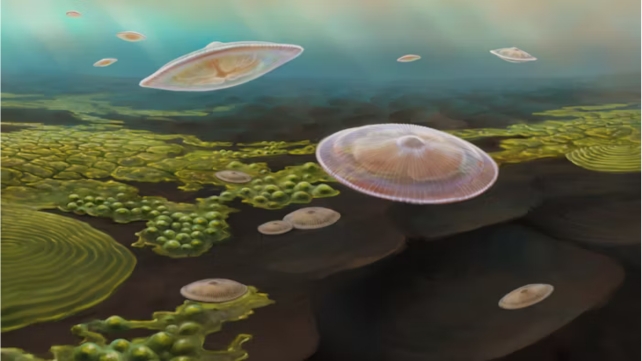A new study claims that complex life evolved over 1.5 billion years earlier than previously believed, pushing the timeline back from 635 million to 2.1 billion years ago.
The study adds a uniquely different perspective to an idea that had taken hold of scientific research for years.
The evidence the researchers showed suggests that the complex animal life didn’t emerge 625 million years ago but rather in marine sedimentary rocks in Africa.

The Research
The oldest known life forms, dating back 3.5 to 4 billion years, were simple microorganisms found in Greenland, Canada, and Australia.
These simple microorganisms required specific conditions in order to evolve into more complex ones.
Published in the August edition of Precambrian Research, the study details an ancient underwater volcanic activity period in the Francevillian Basi in Central Africa that may have caused the complex life to emerge quickly.
This activity reportedly increased phosphorus and oxygen levels in the ocean, creating favorable conditions for complex life 2.1 billion years ago.





